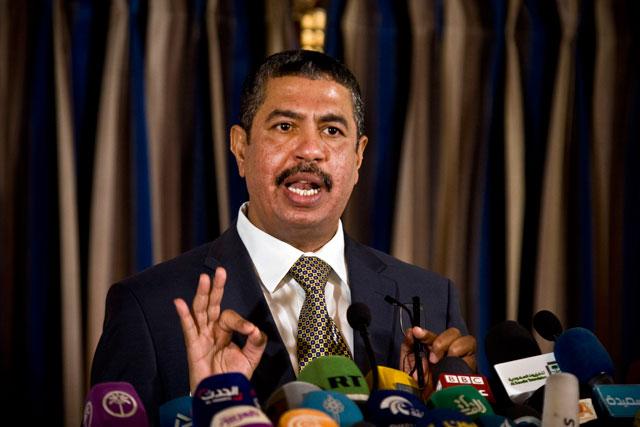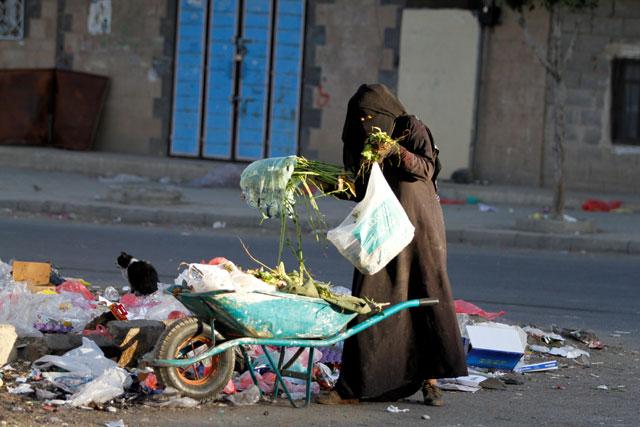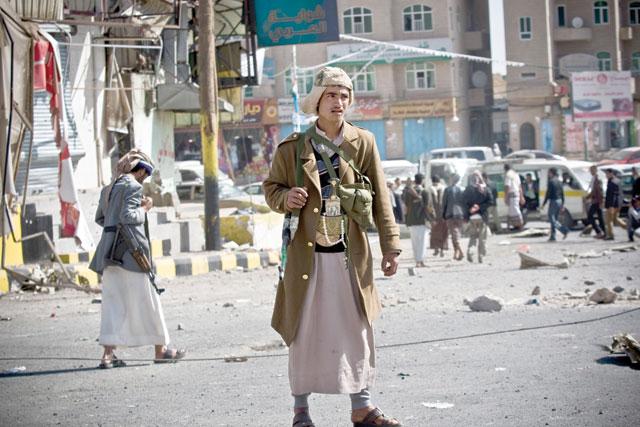You are here
Yemen Cabinet sworn in despite ex-leader’s boycott call
By AFP - Nov 09,2014 - Last updated at Nov 09,2014

SANAA — Yemen's new Cabinet was sworn in on Sunday despite calls by former autocratic president Ali Abdullah Saleh and Shiite militias allied to him for it to be boycotted.
Twenty-nine ministers including members of Saleh's powerful General People's Congress (GPC) and others seen as close to the Shiite Houthi insurgents attended the inauguration at the presidential palace, participants said.
The line-up was sworn in before President Abed Rabbo Mansour Hadi, who succeeded Saleh after he was forced to resign in early 2012 following a year of Arab Spring-inspired protests.
Saleh's GPC had on Saturday urged Cabinet nominees from the party to turn down their ministries, as it rejected newly imposed UN Security Council sanctions against him.
The GPC has also sacked Hadi from its leadership, apparently in retaliation after accusations he had solicited the sanctions announced Friday against Saleh and two Houthi commanders for threatening peace.
Six ministers were absent from Sunday's swearing in ceremony, with Prime Minister Khaled Bahah saying three of them were abroad and three others turned down their appointments.
The GPC on Saturday called for members to turn down the Cabinet posts, while the Huthis rejected the government and demanded a reshuffle to dismiss ministers they consider unqualified or corrupt.
The new 36-member Cabinet was formed as part of a UN-brokered peace deal under which the Houthis, also known as Ansarullah, are supposed to withdraw from Sanaa, which they seized on September 21.
On November 1, the main parties signed an agreement brokered by the UN envoy to Yemen, Jamal Benomar, for the formation of a government of technocrats.
Rebel representatives and their rivals, the Sunni Al Islah (Reform) Islamic Party, mandated Hadi to form a government and committed to support it.
Bahah on Sunday called for political factions to "cooperate" with the new government to help resolve the "dangerous" crisis.
"The most serious challenge we are facing now is how to preserve the state" to prevent a "conflict... with unpredictable outcomes", he said in a statement carried by the official Saba news agency.
Yemen has been dogged by instability since the uprising forced Saleh from power in February 2012, with the Houthi militias and Al Qaeda seeking to fill the power vacuum.
Since it overran Sanaa, Ansarullah has expanded its control to coastal areas and regions south of the capital, where its fighters have met fierce resistance from Sunni tribes and Al Qaeda.
The rebels are thought to be backed by forces loyal to Saleh.
The turmoil has raised fears the Arabian Peninsula nation, which neighbours oil-rich Saudi Arabia and lies on the key shipping route from the Suez Canal to the Gulf, may become a failed state.
Related Articles
SANAA — New signs of tension between Yemen's Houthi rebels and former president Ali Abdullah Saleh emerged on Thursday with a fresh wave of
SANAA — A Yemeni colonel loyal to former president Ali Abdullah Saleh and two Houthi rebels have been killed in Sanaa, in an unprecedented e
Shiite militia fighters attacked Yemeni President Abed Rabo Mansour Hadi's residence and seized the presidential palace Tuesday in what officials said was a bid to overthrow his embattled government.

















